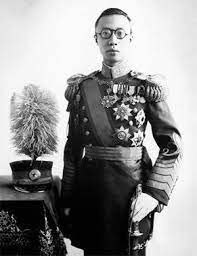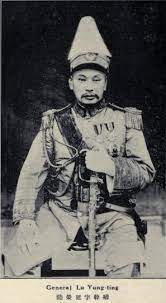Ch'i Hsieh-yuan (1897-1946) served under Li Ch'un (q.v.) and succeeded him as military governor of Kiangsu in 1922. A member of the Chihli faction, he was inspector general of Kiangsu, Anhwei, and Kiangsi (1922-24). In 1937 he became a prominent official in the Japanese-sponsored regime at Peiping. He was arrested in 1945 and was tried, […]













